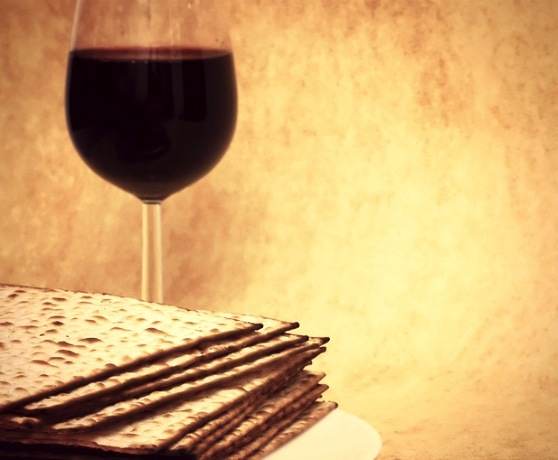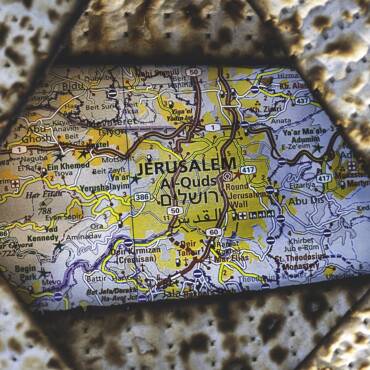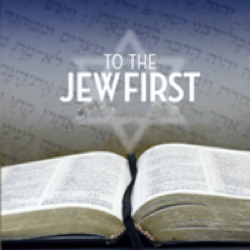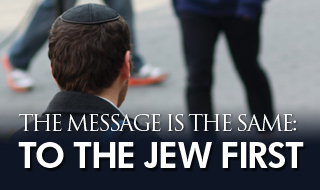The Powerful Passover Witness

By Sam Nadler
Thank you, Prayer Warriors, for your much needed and fully answered prayers for our evangelistic ministries during this 2017 Passover season. Besides others on our staff, I was privileged to speak at over 20 different services and Seders in the last several weeks. At every occasion God’s power enabled me to proclaim Messiah, the Lamb of God. I never cease to be blessed to see even one person respond to the Good News message of Yeshua (aka, Jesus), but to see so many give their hearts to their Messiah is just overwhelming.
Some of you may wonder how this accomplished through a Passover Seder. I can understand how this can seem incongruous, for growing up in a traditional Jewish home, we celebrated Passover every year, but “Jesus” never came up, or was Messiah particularly considered. Mostly I remember the very hot horseradish and begging Zayde (grandfather) to please hurry with the many prayers and traditions so we could eat the wonderful meal prepared for Passover.
Upon coming to faith in Yeshua and reading the New Covenant (aka, New Testament), I was surprised by just how Jewish a book it is! It dealt with Passover over 50 times from Matthew through Revelation (that alone has 32 references to the Lamb!) and the other Festivals as well (see my book, “Messiah in the Feasts of Israel” for more on this subject). The other matter about the New Covenant that surprised me was how few of my fellow believers in Messiah (but from non-Jewish backgrounds) were unaware of how Jewish a book it is!
From the start of my new life in Messiah, I studied the scriptures and especially the sections on the festivals. As I first partook in Messianic Passover Seders (that recognize Yeshua the Messiah as the Lamb of God), and then began conducting these Seders, I was just so blessed by the scriptural fulfillment through Yeshua of the redemption, not just the deliverance from Egypt, but a deliverance from the greater bondage and judgment of sin. It is in light of this greater redemption that the prophets of Israel wrote of the Messiah that He’d be “as a lamb led to the slaughter” and “bear the sins of many” (Isaiah 53:7, 11).
So, in the Messianic Passover Seders that I’m privileged to conduct, we begin by discussing the importance of preparation of the home and the heart. All chametz (leaven) is to be removed, because it symbolizes pride, corruption, sin, and death. This why no leavened products were permitted on the bloody altar in the Tabernacle or Temple (Leviticus 2:11). New covenant writers are so stringent on this same matter as well. We are taught “to purge out the old leaven for Messiah our Passover has been sacrificed for us” in the heart as well as the home (1 Corinthians 5:6-8).
Next we discuss the four cups outlining the Passover Seder. Each one reflects one of the fourfold blessings of redemption in the Passover from Exodus 6:6-7. The first cup is called the cup of sanctification, for the promise is that God will “remove us” from bondage. During this cup, we partake of bitter herbs remembering the bitterness of bondage and why we needed God’s redemption. The second cup is called the cup of “Plagues” (or “judgments”), as we remember the ten plagues upon Pharaoh and Egypt and recognize how God would redeem us, through the Passover lamb. Though we read these same portions during the Passovers in my childhood, there was no emphasis on God’s this vital means of redemption. I suppose a bloody sacrifice would have seemed out of place in this modern world. Traditionally rabbis emphasis that blood is no longer required for forgiveness of sins and the Temple’s destruction in 70 CE/AD was God’s way of changing it all. Though I recognize now that biblically He never changed our need for blood sacrifice for forgiveness and deliverance from bondage and judgment (Malachi 3:6). The application blood of Lamb to our homes and hearts is so necessary that God says only when He “sees the blood” applied would His judgment ‘pass over’ us (Exodus 12:7, 13). Likewise the New Covenant declares Yeshua to be the Lamb of God that takes away the sins of the world” (John 1:29). Only the blood of Yeshua “cleanses away all sin” (1 John 1:7).
After the meal, we partake of the last two Passover cups. The third cup is called the cup of “Redemption” reflecting the Exodus blessing that God will redeem us. This cup reminds of His redemption in two ways. Early on before the meal, a broken, striped, pierced piece of matzah (called the afikomen) was wrapped and ‘buried’ until after the supper at the third cup. At this point in the seder, this afikomen is taken out and eaten as the last item in the Passover meal. It represents the last sacrifice for redemption, the Lamb. Along with the matza, we drink from the third cup. Its contents are the color which reminds us of the redemptive blood of the Lamb. It is this piece of bread and cup that the Messiah used to institute “the Lord’s Supper. Many people are often confused, thinking that they have a right relationship with God through this bread and cup, or some other religious ceremony. I remind them through the Seder that it’s not at the third cup through which we come to know the Lord, but by way of the first two cups. Through these first two cups, we saw the broken afikomen representing the provision God made for us in the Lamb. It is especially the second cup where we remember that blood of the lamb had to be applied to the doorway to be delivered from judgment. So too, the blood of Messiah must be applied to our hearts door by faith to have God’s deliverance from bondage and judgment, and to ‘know the Lord” even as the prophet Jeremiah said would happen through the New Covenant God would make with Israel (Jeremiah 31:31-34).
As we end the Passover with the fourth cup, the Cup of Hallel (Praise), we leave praising the Messiah of Israel, Yeshua the Lamb of God. We also pray for those who do not know the Lord and for whom the redemption is not happening now; those who wait another year for the redemption to come. We conclude with “L’shana haba bey’yerushalyim!” (Next year in Jerusalem!). At this time at the end of the Seder, we invite those who haven’t yet trusted in Messiah’s blood and, therefore, don’t yet ‘know the Lord” to place their faith in Yeshua for this new life in Him. Wonderfully, gloriously so many have done so this Seder season, all to the praise of His glory. Thank you again for praying.



